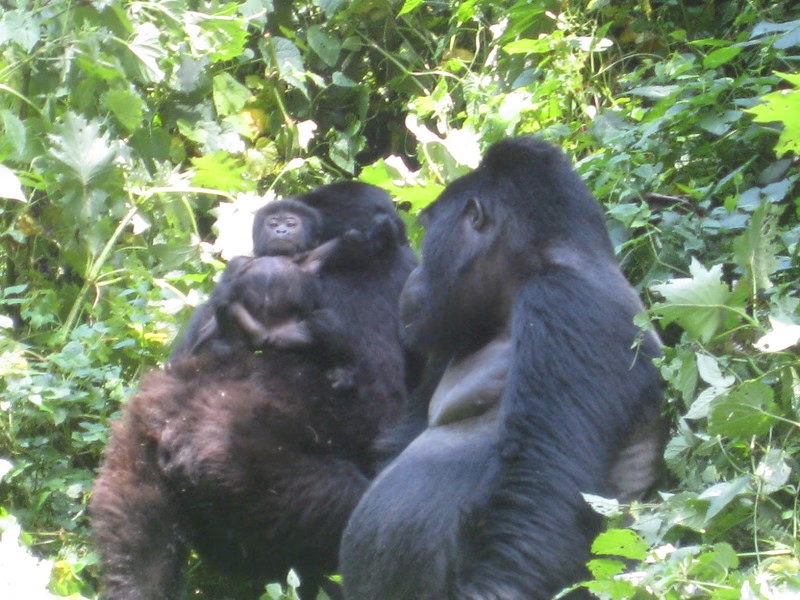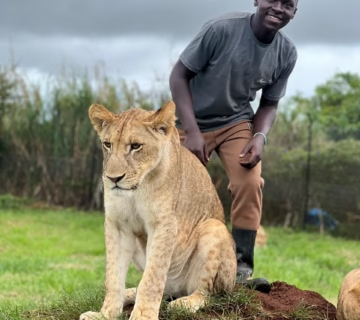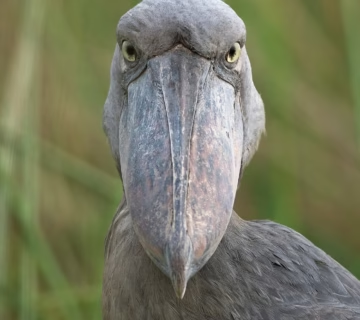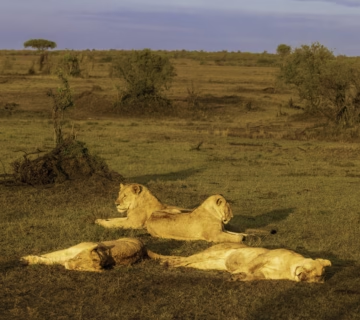New Gorilla Additions in Bwindi.
On May 1, 2020, the Nshongi gorilla family welcomed a new baby into Uganda’s Bwindi Impenetrable National Park, and on April 25, 2020, the Muyambi gorilla family joined. The families, the Uganda Wildlife Authority, conservation organizations, and other tourist players enthusiastically embraced these new gorilla additions to Bwindi.
The new baby gorilla of the Nshongi gorilla family was born to Kabagyenyi and the silverback Bweza, while the parents of the Muyambi gorilla family are still unknown. The genders of these newborn gorillas are still unknown. This is the case because it is quite difficult to inspect the newborns up close since their relatives, particularly the moms, fiercely protect them.
Many tourists who have done gorilla trekking in Bwindi Impenetrable National Park have chosen to see the Muyambi gorilla family, one of the newest gorilla families in the park. In the past, Muyambi, the dominating silverback in this family, belonged to the Mubare family, which was the first to be used for gorilla trekking in Bwindi.
In 2019, Muyambi became available for gorilla trekking after separating from the Mubare gorilla family to establish his own. It is thus quite uplifting to welcome a newborn baby gorilla to this recently formed gorilla family.
In contrast, the Rushaga gorilla zone of Bwindi is home to the ancient Nshongi gorilla family, which was the first to be acclimated and made available for gorilla trekking. After being habituated since 2007, this gorilla family, which includes the dominant silverback, Nshongi, was first used for gorilla trekking in 2009. The Nshongi gorilla family was called for its dominating silver and because it was found close to the Nshongi River, where it remains to this day.
The family is the biggest gorilla family in the Rushaga gorilla territory, with only well over 25 gorillas remaining after the silverbacks broke off to form their own families. Previously, the family had over 35 gorilla members.
The gorilla’s mother, Kabagyenyi, is just ten years old, and this is her first child. With time, this newborn will be given a name. Two silverbacks, Kakono and Nshongi, are members of the Nshongi gorilla family; Nshongi is the dominant; six adult females, Munini, Shida, Bukojo, Nyampundu, Bwiruka, and Kabagyenyi; seven blackbacks, including the newborn’s father, Bweza; five juveniles, Tindatine, Mureba, Rurehuka, Mucunguzi, and Mahoro; six infants, Kazani, Katoono, Mukiza, Ninsiima, Bwiruka, and Rotary; and the newborn.
The number of gorillas in Bwindi is increasing as a result of the recent additions. All of this is a result of the Uganda Wildlife Authority’s and its partners’ outstanding conservation efforts, which are committed to the preservation and conservation of mountain gorillas. According to a recently completed gorilla census, Bwindi has the largest gorilla population, with well over 459 individuals.
The other three gorilla destinations that are part of the Virunga Conservation Area—Virunga National Park in the Congo, Volcanoes National Park in Rwanda, and Mgahinga Gorilla National Park in Uganda—share the remaining population. Additionally, according to the most recent research, there are only 1063 gorillas in the globe. With time, the number of gorillas in Bwindi and other gorilla destinations will increase to the point where extinction is no longer a concern.
To observe these newborn gorillas, visitors must reserve a gorilla safari in Bwindi and be assigned to the appropriate gorilla family. A gorilla trekking permit is necessary in order to participate in gorilla trekking. The Uganda Wildlife Authority offices or a reputable travel operator may sell gorilla trekking permits. Gorilla permits tend to sell out quickly because of the huge demand for gorilla trekking. It is thus advisable to make reservations in advance to guarantee a space.
Primate safaris that include gorilla trekking, chimpanzee tracking, and golden monkey tracking have been suspended in Uganda, Rwanda, and the Democratic Republic of the Congo due to the ongoing COVID-19 pandemic. This is done to protect primates, who are particularly vulnerable to human diseases. Following the end of the Covid-19 outbreak, primate safaris will resume.
For additional information on how to participate in gorilla trekking following COVID-19 and be able to observe these new gorilla additions in Bwindi, book a gorilla safari trip or speak with a respectable tour operator like Maseke Adventure Co.Ltd.



